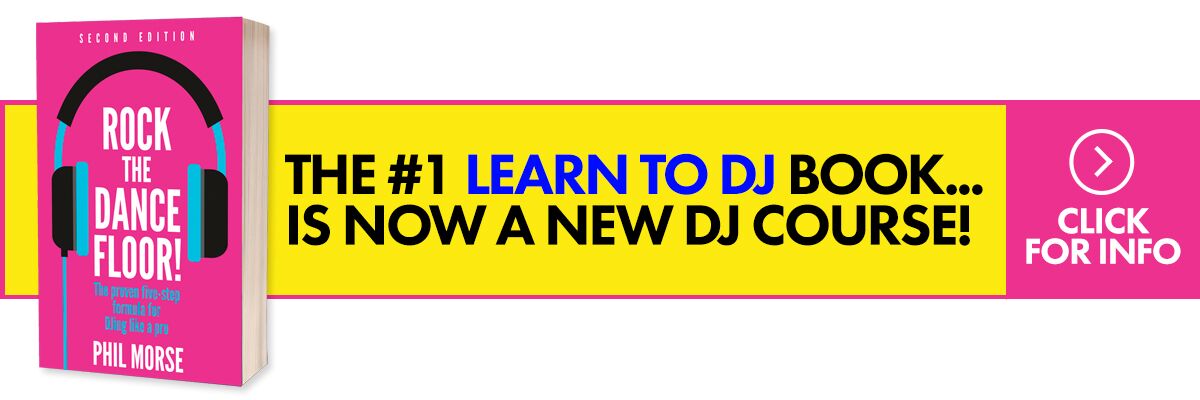If you are a regular DJ it’s likely that you’re familiar with the high-pitched ringing in your ears that you often encounter after a gig. Often this will only last for a few hours, but the more frequently you play out, the higher chance you have of it becoming a permanent problem. Losing the ability to hear properly is not just a small problem for DJs; it can actually end your career.
Tinnitus is something that’s not discussed enough in the industry despite it being very common. However, recently many DJs have come out to talk about issues with their hearing, and with Tinnitus Awareness Week taking place this week; what better time to talk about the issue and offer some solid advice?
About tinnitus
Tinnitus is caused by long term exposure to music or sound over what is considered to be the safe limit. Experts agree that this limit is around 85dB but we are often in situations where the level is above this. For example music in a club is generally around 110dB and some clubs will even go as high as 120dB.
It’s estimated that one in ten adults in the UK have minor tinnitus and up to one per cent have it to a degree that it affects day-to-day life. For a DJ, who is often in an environment where the music is too loud, the potential risk for causing permanent hearing damage is much higher.
There is currently no known cure for tinnitus and although there are treatments available aimed alleviating some of the known symptoms, protecting your hearing in the first place is the best known method of prevention.
7 ways to stop it affecting you
So here are seven solid steps you can consider. Take them as advice for any up and coming DJ who may be starting to get more regular slots, or ways of stopping the damage getting worse if you’re starting to feel the symptoms:
- Use professional ear plugs – It is highly recommended that you invest in a pair of professional ear plugs. Unlike cheap ear plugs a professional pair will filter out the dangerous frequencies leaving you with the same clarity but at a lower level. The initial cost may seem expensive but you’ll appreciate them when you can still hear clearly after a gig
- Get a pair of decent headphones – A decent pair of headphones will do wonders for your mixing but will also allow you to cue the next track without having to crank the monitor volume. You’ll also be surprised at how much easier it is to pick out individual parts from the track you’re listening to. Again, the initial outlay might seem a bit pricey – but they’re a definite must if you’re to be taken seriously, anyway…
- Turn down the monitor in between mixes – Allowing your ears a chance to have a break from the mix goes a long way towards preventing hearing damage. It also gives you chance to hear what’s coming out of the front and assess the vibe of the room (bonus!)
- Avoid back to back gigs – Freeing up your schedule allows time for your ears to recover in between slots. It’s hard to do, especially if you’re just starting to get regular slots but if it can be avoided it’s a good idea
- Limiting frequent long sets – These days it’s not often that a DJ will play for four hours plus but sometimes you may find yourself with a long warm up or wind down slot. Limiting the amount of times you do this is also important. Tinnitus is caused by prolonged exposure over time so regular four-hour sets don’t help at all
- Leave the drink – Some people feel like they’re a better DJ when they’re drunk but let’s not lie, it probably sounds horrendous. The drunker you get the more likely you are to turn up the volume to compensate for you not being able to hear as clearly – so save the booze until after you’ve played. Not to mention your sets will sound a lot better…
- Consider using in-ear monitors – Now this isn’t for everybody but in ear monitors are much better for your hearing as you can use them with the volume at a much lower level. Some DJs swear by them, and they certainly mean you can leave the club with your hearing much the same as it was before you went in. Understandably though, they’re not for everybody so it would recommended to try them first before purchasing
• For further information on Tinnitus and various treatments for those who already suffer, you can visit the Action Hearing Loss website.
Do you suffer (temporarily or permanently) from tinnitus? What do you wish you’d done differently? Got any extra advice to add? Please share your thoughts in the comments.


